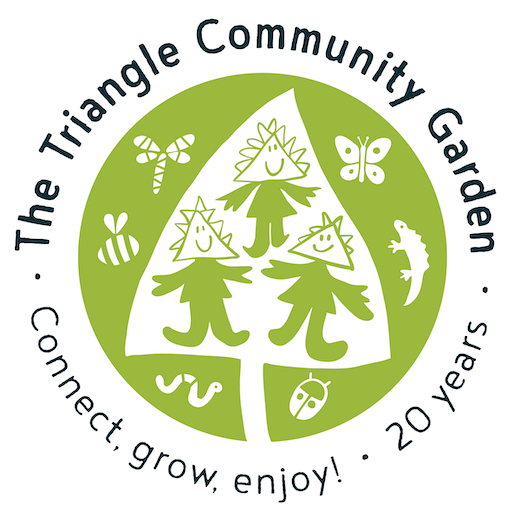Last month members of our Garden Club took a break from caring for the Triangle Garden, to do a little planting in Hitchin town centre. Having seen the effect our green fingers have had on the Church House Courtyard Garden, Hitchin Initiative commissioned us to design and install a planting scheme in the two sad old brick planters outside Next on the High Street.
The brief asked for all year round impact, with seasonal interest, but we also imposed our own requirements which were that the planting evoked the Triangle Garden’s themes of interesting edibles and pollinator-freindly planting.
The star plant in larger shadier bed is Sarcococca or Christmas Box, which flowers in winter, giving a wonderful heady scent. The groundcover is blue periwinkle and ornamental thymes with accents of strappy-leaved white-flowered lilyturf (Liriope muscari alba). The sunnier bed has Rosemary and Lavender sharing centre stage and giving off summer fragrance, among a carpet of ornamental thymes. We have mulched the beds thoroughly to help the soil retain rainwater and keep it moist in dry spells. The mulch will also deter weed growth.
All the plants we have used are perennials so, if they like the conditions, they will continue to thrive year on year, making this sort of solution much less labour-intensive and more eco-friendly than a bedding scheme or an annual wildflower sowing.
What’s more pollinators love the plants we’ve used, so hopefully you will soon see bees and butterflies visiting these beds once the flowers open. Most bedding plants by contrast, do not attract bees, as they have been bred to be sterile and hence contain little or no nectar or pollen. Busy Lizzies, petunias, geraniums and begonias all fall into this category so if you want to encourage pollinators to your garden, avoid them!
Including a winter flowering shrub like Sarcococca in your planting scheme helps bees to find food even in winter, when they go out foraging on milder days. As well as making your garden attractive all year round, it’s beneficial to bees to plant a selection of plants that flower at different times of year, so there is always somewhere where they can find food.
Find out more about our Friday morning Garden Club here
Find out more about pollinator-friendly planting at the RHS website
